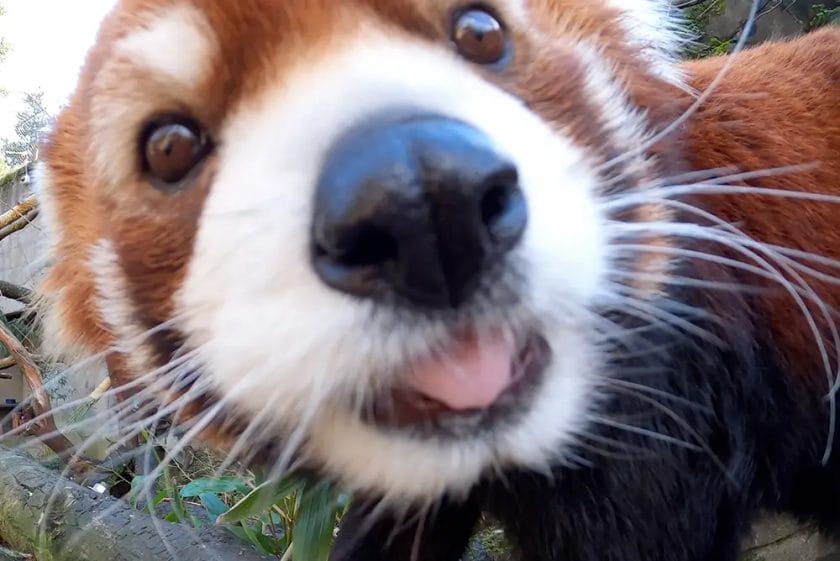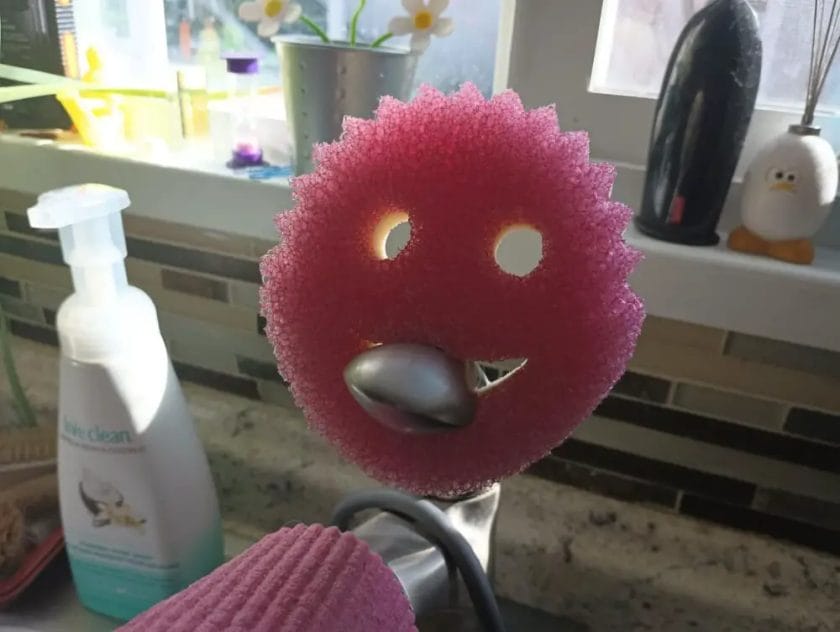If you’re dealing with a horse that sticks his tongue out, you may be wondering how to address this behavior. While it can be frustrating, there are several approaches you can take to help correct this issue. Understanding the underlying causes of tongue sticking and implementing targeted training techniques can improve your horse’s behavior and overall riding experience. Whether it’s a dental problem, bit discomfort, or a learned behavior, addressing the root cause and providing appropriate training can lead to a happier and more contented horse.
One common cause of tongue sticking in horses is dental issues. An examination by a qualified equine dentist can help identify any dental problems that may be causing discomfort and resulting in the horse sticking its tongue out. If dental issues are detected, appropriate dental care such as floating or addressing sharp points can alleviate the problem and improve the horse’s overall comfort.
Bit discomfort is another possibility that may cause a horse to stick its tongue out. Ill-fitting bits or incorrect bit placement can lead to discomfort and encourage the horse to respond by protruding its tongue. Working with a knowledgeable trainer or equine professional can help you choose the right bit for your horse’s mouth shape and size and ensure proper placement for optimal comfort and communication.
Some horses may develop the habit of sticking their tongues out as a learned behavior. This can occur if the horse has received inadvertent positive reinforcement in the past or has found relief from bit pressure by extending its tongue

Training Techniques to Address Tongue Sticking in Horses
One common issue that horse owners may face is tongue sticking. This occurs when a horse sticks its tongue out of its mouth during riding or handling, which can be both frustrating and potentially dangerous. Luckily, there are several training techniques that can help address this behavior and encourage the horse to keep its tongue inside its mouth. In this section, we will explore some effective training techniques to address tongue sticking in horses.
1. Bit Adjustment
The first step in addressing tongue sticking is to ensure that the bit is properly adjusted. A poorly fitted bit can cause discomfort and encourage the horse to stick its tongue out as a way to relieve the pressure. Check that the bit sits comfortably in the horse’s mouth, with enough space for the tongue to move freely. If necessary, consult with a professional to ensure the bit is adjusted correctly.
2. Desensitization
Desensitization is a technique that involves gradually introducing the horse to stimuli that may trigger tongue sticking, such as the bit or reins. Start by lightly touching the horse’s mouth with the bit or reins and rewarding the horse for staying calm. As the horse becomes more comfortable, gradually increase the intensity and duration of the stimuli, always rewarding calm behavior. This helps the horse become desensitized to these triggers and reduces the likelihood of tongue sticking.
3. Bitless Bridle
If tongue sticking persists despite adjustments and desensitization, switching to a bitless bridle may be beneficial. Bitless bridles provide alternative pressure points on the horse’s head and can help alleviate discomfort that may lead to tongue sticking. Introduce the bitless bridle gradually, using positive reinforcement to encourage the horse to accept and respond to the new form of communication.
4. Tongue Ties or Straps
In some cases, using tongue ties or straps can be effective in preventing tongue sticking. These devices secure the tongue against the lower jaw or bit, preventing it from protruding. However, it is essential to use these devices correctly and under the guidance of a professional, as misuse can cause discomfort or restrict the horse’s natural movement.
5. Consistent Reinforcement
Consistency is key when addressing tongue sticking in horses. Establish clear cues for the horse to keep its tongue inside its mouth, and reinforce these cues consistently during training sessions. Reward the horse for correct behavior and redirect or correct any tongue sticking immediately. With time and consistent reinforcement, the horse will learn to keep its tongue inside its mouth as a default behavior.
6. Dental Check-Up
It is also essential to rule out any dental issues that may contribute to tongue sticking. Regular dental check-ups by a qualified equine dentist can help identify and address any dental problems that may be causing discomfort or issues with the horse’s tongue. Treating these issues can significantly improve the horse’s overall comfort and reduce the likelihood of tongue sticking.
In summary, tongue sticking in horses can be addressed through a combination of proper bit adjustment, desensitization, and consistent reinforcement. If these techniques are not effective, exploring alternative equipment such as bitless bridles or tongue ties may be necessary. It is also crucial to consider the horse’s dental health and address any underlying issues. By using these training techniques and ensuring the horse’s comfort, tongue sticking can be effectively addressed, improving the horse’s overall well-being during riding and handling.

Dental Issues and Tongue Sticking in Horses
In this section, we will discuss the dental issues that can lead to tongue sticking in horses. Dental problems are common in horses and can have a significant impact on their overall health and well-being. One particular issue that horse owners should be aware of is when a horse’s tongue sticks out of its mouth.
Causes of Tongue Sticking
There can be several underlying causes for tongue sticking in horses, and dental issues are one of the primary culprits. When a horse’s teeth become irregular or develop sharp points, it can cause discomfort and pain while chewing. In some cases, these dental abnormalities can result in the horse’s tongue getting caught between its teeth or protruding out of its mouth.
Some common dental problems that can contribute to tongue sticking in horses include:
- Malocclusion: This refers to a misalignment of the teeth, which can lead to sharp edges or hooks that can trap the tongue.
- Decayed or Broken Teeth: Damaged teeth can cause pain and difficulty in chewing, leading to tongue protrusion.
- Retained Caps: Young horses often retain their baby teeth, which can interfere with the development of proper adult teeth alignment.
- Periodontal Disease: Inflammation or infection of the gums can affect the horse’s ability to chew properly and cause tongue sticking.
Signs and Symptoms
It is essential for horse owners to recognize the signs and symptoms of dental issues that may cause tongue sticking. These include:
- Tongue constantly protruding from the mouth
- Difficulty in chewing or dropping feed
- Weight loss or poor body condition
- Excessive drooling or foaming at the mouth
- Visible oral discomfort or reluctance to accept the bit
Treatment and Prevention
If a horse is experiencing tongue sticking due to dental issues, it is crucial to seek veterinary attention promptly. A qualified equine dentist will perform a thorough oral examination and address any dental abnormalities found. Treatment options may include:
- Floatation: This procedure involves filing down sharp edges or uneven tooth surfaces to restore a proper bite.
- Extraction: In severe cases, damaged or decayed teeth may need to be extracted to alleviate pain and discomfort.
- Regular Dental Check-ups: Prevention is key when it comes to dental issues in horses. Regular dental check-ups and maintenance can help identify and address any problems before they escalate.
- Proper Nutrition: Providing horses with a balanced and appropriate diet can help maintain their dental health and reduce the risk of oral issues.
In summary, dental issues can lead to tongue sticking in horses. It is important for horse owners to be aware of the potential causes, signs, and symptoms associated with dental problems. By seeking timely veterinary care and implementing preventive measures, such as regular dental check-ups and a proper diet, horse owners can help ensure their horse’s oral health and overall well-being.

Equipment and Bitting Solutions for Tongue Sticking Horses
Dealing with a horse that has a tongue sticking issue can be challenging for riders and trainers. This problem can lead to communication difficulties and discomfort for the horse. However, there are several equipment options and bitting solutions available that can help address this issue and improve the horse’s performance. In this section, we will explore some of the equipment and bitting solutions that can be used for tongue sticking horses.
1. Tongue Ties
Tongue ties are commonly used to prevent horses from sticking their tongues out while being ridden. They are made of soft fabric or rubber and are placed around the horse’s tongue and secured to the bit or bridle. Tongue ties can help keep the tongue in place and prevent it from interfering with the bit, improving communication between the rider and the horse.
It is important to note that tongue ties should be used with caution and under the guidance of an experienced trainer or equine professional. The tightness of the tongue tie should be adjusted appropriately to allow the horse to swallow and breathe comfortably.
2. Bitless Bridles
For horses that have severe tongue sticking issues or are sensitive to the pressure of a bit, bitless bridles can be a suitable alternative. Bitless bridles work by applying pressure to different parts of the horse’s head, such as the nose, chin, or poll, to communicate cues and control the horse’s movements.
There are various types of bitless bridles available, such as cross-under, side-pull, or hackamore bridles. Each type has its own design and mechanism for communication. It is important to choose a bitless bridle that is suitable for your horse’s needs and provides clear and effective communication.
3. Rubber or Mullen Mouth Bits
Rubber or mullen mouth bits can be effective in addressing tongue sticking issues. These types of bits have a soft, solid mouthpiece that provides a gentle and comfortable contact for the horse’s tongue. The lack of joints or harsh edges reduces the likelihood of the horse sticking its tongue out or becoming uncomfortable.
When using rubber or mullen mouth bits, it is important to ensure that the bit is the correct size and properly adjusted in the horse’s mouth. A well-fitted bit will promote better communication and prevent discomfort or irritation.
4. Bit Guards or Bit Butter
Bit guards or bit butter can be used as additional aids to prevent tongue sticking and improve comfort for the horse. Bit guards are soft rubber or plastic rings that can be placed on either side of the bit to create a barrier and prevent the horse from getting its tongue over the bit.
Bit butter, on the other hand, is a gentle lubricant that can be applied to the bit before riding. It helps to reduce friction and discomfort, making it less likely for the horse to stick its tongue out or become resistant to the bit.
5. Training and Conditioning
Besides using specialized equipment, it is important to address the underlying causes of tongue sticking through proper training and conditioning. Working with an experienced trainer can help identify any behavioral, physical, or dental issues that may contribute to this problem.
Training exercises that focus on improving the horse’s responsiveness to cues and building a strong foundation of communication can also be beneficial. Gradual desensitization to the bit and consistent reinforcement of desired behaviors can help the horse overcome tongue sticking issues.
In summary, dealing with tongue sticking horses requires a combination of appropriate equipment and proper training techniques. Tongue ties, bitless bridles, rubber or mullen mouth bits, and additional aids like bit guards or bit butter can all play a role in addressing this issue. However, it is important to work with a knowledgeable professional to ensure the safety and comfort of the horse throughout the training process. With patience, consistency, and the right equipment, it is possible to improve communication and enhance the overall riding experience for both the horse and the rider.
Seeking Professional Help: When to Consult a Veterinarian or Equine Dentist
As a responsible horse owner, it is important to understand when to seek professional help for your horse’s dental care. While regular dental maintenance can be performed by horse owners themselves, there are certain situations where the expertise of a veterinarian or equine dentist is necessary. In this section, we will discuss the signs and scenarios that indicate the need for professional intervention.
1. Unusual Behavior and Performance Issues
If your horse is exhibiting unusual behavior such as head tossing, difficulty chewing, excessive salivation, or resistance to bridling, it may be indicative of a dental problem. Performance issues like decreased appetite, weight loss, or poor performance under saddle can also be attributed to dental issues. In such cases, it is recommended to consult a veterinarian or equine dentist for a thorough examination.
2. Oral Discomfort or Pain
Horses experiencing oral discomfort or pain may exhibit behaviors such as grinding their teeth, rubbing their face against objects, or showing sensitivity when their head is touched. These signs can indicate dental problems like sharp edges, hooks, or ulcers. A professional evaluation can help identify and address these issues before they escalate.
3. Abnormal Dental Growth or Wear
Regular dental check-ups are crucial to detect any abnormal dental growth or wear patterns. Conditions like wave mouth, step mouth, or excessive wear can affect your horse’s ability to chew and process food properly. Professional intervention is necessary to correct these issues and ensure your horse’s oral health.
4. Routine Dental Maintenance
Even if your horse does not show any apparent signs of dental issues, regular dental maintenance is still essential. A veterinarian or equine dentist can perform routine procedures such as dental floating to prevent the development of sharp edges or hooks. They can also provide professional advice on proper dental care practices for your horse.
5. Dental Abnormalities or Trauma
In cases where your horse has experienced dental abnormalities or trauma, it is crucial to consult a professional. These may include fractured teeth, abscesses, or other dental injuries. Professional intervention can help alleviate pain and prevent further complications.
6. Age-Specific Dental Concerns
Horses of different age groups have specific dental concerns. For young horses, professional guidance is required to monitor the eruption and alignment of their permanent teeth. Older horses may require regular dental care due to age-related issues such as tooth loss, gum disease, or the development of oral tumors. Consulting a veterinarian or equine dentist can ensure appropriate care for your horse based on their age-specific needs.
In summary, while horse owners can perform regular dental maintenance, there are situations where professional help is necessary. Unusual behavior, oral discomfort or pain, abnormal dental growth, routine maintenance, dental abnormalities or trauma, and age-specific concerns are all indicators that you should consult a veterinarian or equine dentist. By seeking timely professional intervention, you can ensure the overall oral health and well-being of your beloved equine companion.
FAQs
Can you fix a horse that sticks his tongue out?
Yes, a horse that sticks his tongue out can be trained to keep it in his mouth. This behavior can be due to various reasons, such as dental issues or discomfort. Consulting with a veterinarian and an experienced trainer can help identify the cause and develop a training plan to correct the behavior.
How can I prevent my horse from getting ulcers?
To prevent ulcers in horses, it is important to provide a balanced diet, regular turnout or exercise, and minimize stress. Feeding small, frequent meals, providing ample grazing or forage, and using slow feeders can help reduce the risk of ulcers. Consulting with a veterinarian and equine nutritionist can also be beneficial in creating a suitable diet plan.
What can I do to keep my horse’s hooves healthy?
To maintain healthy hooves in horses, regular hoof care is essential. This includes regular trimming or shoeing, providing a clean and dry environment, and ensuring proper nutrition. Regular exercise and turnout can also contribute to healthy hooves. Consulting with a farrier and implementing a hoof care routine can help keep your horse’s hooves in optimal condition.
Conclusion:
In conclusion, dealing with a horse that sticks its tongue out can be a challenging task, but with patience and the right techniques, it is possible to address the issue. By understanding the potential causes behind this behavior, such as dental problems or discomfort in the bit, horse owners and trainers can take appropriate measures to tackle the issue. Seeking professional guidance and implementing consistent training methods can go a long way in correcting the problem and improving the horse’s overall behavior and performance. Remember, each horse is unique, so it may take time to find the most effective approach for your horse.
